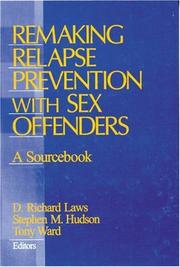| Listing 1 - 7 of 7 |
Sort by
|

ISBN: 0745317855 0745317847 1849641196 1281725129 9786611725129 1435660994 9781849641197 1849641196 1783710969 9781783710966 9781435660991 9780745317854 9780745317847 9781281725127 6611725121 Year: 2004 Publisher: London Sterling, Virginia
Abstract | Keywords | Export | Availability | Bookmark
 Loading...
Loading...Choose an application
- Reference Manager
- EndNote
- RefWorks (Direct export to RefWorks)
Political corruption --- Political persecution --- State-sponsored terrorism --- Genocide --- War crimes --- Corruption (Politique) --- Répression politique --- Terrorisme d'Etat --- Génocide --- Crimes de guerre --- #SBIB:051.IO --- #SBIB:35H52 --- Ethiek van bestuur en beleid --- State crimes --- Criminology, Penology & Juvenile Delinquency --- Political Institutions & Public Administration - General --- Social Welfare & Social Work --- Government - General --- Social Sciences --- Law, Politics & Government --- Genocide. --- Political corruption. --- Political persecution. --- State crimes. --- State-sponsored terrorism. --- War crimes. --- Répression politique --- Génocide --- Cleansing, Ethnic --- Ethnic cleansing --- Ethnic purification --- Ethnocide --- Purification, Ethnic --- Government violence --- Governmental violence --- State-sponsored violence --- State terrorism --- Violence, Governmental --- Violence, State-sponsored --- Crimes committed by states --- State-sponsored crimes --- Political repression --- Repression, Political --- Boss rule --- Corruption (in politics) --- Graft in politics --- Malversation --- Political scandals --- Politics, Practical --- Corrupt practices --- Crime --- Political atrocities --- Terrorism --- Persecution --- Civil rights --- Corruption --- Misconduct in office
Book
ISBN: 0123984939 0123979374 1336197862 9780123984937 9781336197862 9780123979377 Year: 2015 Publisher: London, England : Academic Press,
Abstract | Keywords | Export | Availability | Bookmark
 Loading...
Loading...Choose an application
- Reference Manager
- EndNote
- RefWorks (Direct export to RefWorks)
Theories of crime typically reflect the discipline of the theorist. There has been little attempt to construct multidisciplinary frameworks that integrate psychological, biological, and sociological concepts in explaining, and controlling, criminal activity. Evolutionary behavioral science is ideally placed to provide a comprehensive and scientifically grounded framework for understanding criminal behavior. As human beings evolved, criminal behavior was a result of adaptations, or the by-products of adaptations. This book introduces a comprehensive evolutionary behavioral science approach
Criminal justice, Administration of. --- Criminology -- History. --- Criminology. --- Criminal anthropology --- Criminology --- Human evolution --- Criminal behavior --- Evolution (Biology) and the social sciences --- Social Welfare & Social Work --- Social Sciences --- Criminology, Penology & Juvenile Delinquency --- Genetic aspects --- Criminal anthropology. --- Human evolution. --- Evolution (Biology) and the social sciences. --- Genetic aspects. --- Social sciences and evolution --- Social sciences --- Behavior genetics --- Evolution (Biology) --- Physical anthropology --- Evolutionary psychology --- Human beings --- Crime --- Criminals --- Anthropology, Criminal --- Criminal anthropometry --- Anthropometry --- Origin --- Study and teaching --- Evolutionary psychology. --- Sociological aspects.

ISBN: 1281143227 9786611143220 1846427169 9781846427169 9781843104865 1843104865 661114322X Year: 2008 Publisher: London Philadelphia Jessica Kingsley
Abstract | Keywords | Export | Availability | Bookmark
 Loading...
Loading...Choose an application
- Reference Manager
- EndNote
- RefWorks (Direct export to RefWorks)
People respond passionately to issues of human rights, partly because they frame our expectations of fair treatment, equity and justice. Increasingly, work within the human services is influenced by rights-based discourses. Knowledge about the nature and scope of human rights and their attendant moral assumptions are essential theoretical resources for human service workers faced with the ethical complexities of daily practice. Morals, Rights and Practice in the Human Services provides a synthesis of human rights theory and human services practice and offers a rights-based model to aid profess
Human rights. --- Social service --- Sociology of social work --- Sociology --- Basic rights --- Civil rights (International law) --- Human rights --- Rights, Human --- Rights of man --- Human security --- Transitional justice --- Truth commissions --- Sociological aspects. --- Law and legislation

ISBN: 9781843103455 1843103451 1846424542 9781846424540 1846424755 9781846424755 1280566396 9781280566394 9781846424755 1843103451 9786610566273 1280566256 9786610566396 1846424569 9781846424564 9781843102700 1843102706 Year: 2006 Publisher: London Philadelphia Jessica Kingsley Publishers
Abstract | Keywords | Export | Availability | Bookmark
 Loading...
Loading...Choose an application
- Reference Manager
- EndNote
- RefWorks (Direct export to RefWorks)
This book offers a challenge to many of the assumptions of criminal justice policy and the dominant approaches to practice. The contributors advocate an emphasis on constructive work with offenders that harnesses their positive strengths and resources, and offers inclusive approaches to effective offender assessment and intervention.
Constructivism (Psychology). --- Probation --- Social work with criminals --- Hulpwetenschappen --- Rechtswetenschappen en criminologie. --- Constructivism (Psychology) --- Psychology --- Children --- Culture. --- Social work with children. --- Cultural sociology --- Culture --- Sociology of culture --- Civilization --- Popular culture --- Services for. --- Social aspects
Book
ISBN: 3845214988 3832940774 Year: 2009 Publisher: [s.l.] : Nomos Verlagsgesellschaft mbH & Co. KG,
Abstract | Keywords | Export | Availability | Bookmark
 Loading...
Loading...Choose an application
- Reference Manager
- EndNote
- RefWorks (Direct export to RefWorks)
Not so long ago, the only respectable question for philosophical, legal, and political scholars to ask about torture was how to ensure its effective legal prohibition. Recently, however, some leading lawyers and legal theorists have challenged those who are absolutely opposed to torture, arguing that, in some circumstances, torture may be morally permissible or even required. This has provoked a range of responses, from outraged dismissal to cautious concessions that the law has to adjust to new realities. This volume contains writings by some of the leading contributors to these debates. Distinctively, it supplements the discussion about the morality of torture - and the morality of discussing torture - with essays which provide important legal, sociological, and historical analyses of this appalling human practice and of the attempts to control it. With an international and interdisciplinary authorship, Torture: Moral Absolutes and Ambiguities will be essential reading for legal and political theorists, philosophers, sociologists, historians, and indeed anybody interested in serious and informed thinking about this most disturbing phenomenon.
Technology & Engineering / Agriculture --- Technology --- Applied science --- Arts, Useful --- Science, Applied --- Useful arts --- Science --- Industrial arts --- Material culture

ISBN: 1322420629 1452262136 9781452262130 9781452224954 1452224951 9781322420622 0761918876 9780761918875 Year: 2000 Publisher: Thousand Oaks, Calif. Sage Publications
Abstract | Keywords | Export | Availability | Bookmark
 Loading...
Loading...Choose an application
- Reference Manager
- EndNote
- RefWorks (Direct export to RefWorks)
'Remaking Relapse Prevention With Sex Offenders' is a comprehensive resource of the most current and practical information about working with sex offenders to prevent relapse.
Sex crimes --- Sex offenders --- Offenders, Sex --- Predators, Sexual --- Sex criminals --- Sexual offenders --- Sexual predators --- Criminals --- Prevention. --- Rehabilitation.
Book

ISBN: 1526172356 1526172348 Year: 2023 Publisher: Manchester : Manchester University Press,
Abstract | Keywords | Export | Availability | Bookmark
 Loading...
Loading...Choose an application
- Reference Manager
- EndNote
- RefWorks (Direct export to RefWorks)
This edited volume examines the performance and role of scientific experts in modern European courts of law and police investigations. It discusses cases from criminal, civil and international law to parse the impact of forensic evidence and expertise in different European countries. The contributors show how modern forensic science and technology are inextricably entangled with political ideology, gender norms and changes in the law and legal systems. Discussing fascinating case studies, they highlight how the ideology of authoritarian and liberal regimes has affected the practical enactment of forensic expertise. They also emphasise the influence of images of masculinity and femininity on the performance of experts and on their assessment of evidence, victims and perpetrators. This book is an important contribution to our knowledge of modern European forensic practices.
| Listing 1 - 7 of 7 |
Sort by
|

 Search
Search Feedback
Feedback About UniCat
About UniCat  Help
Help News
News